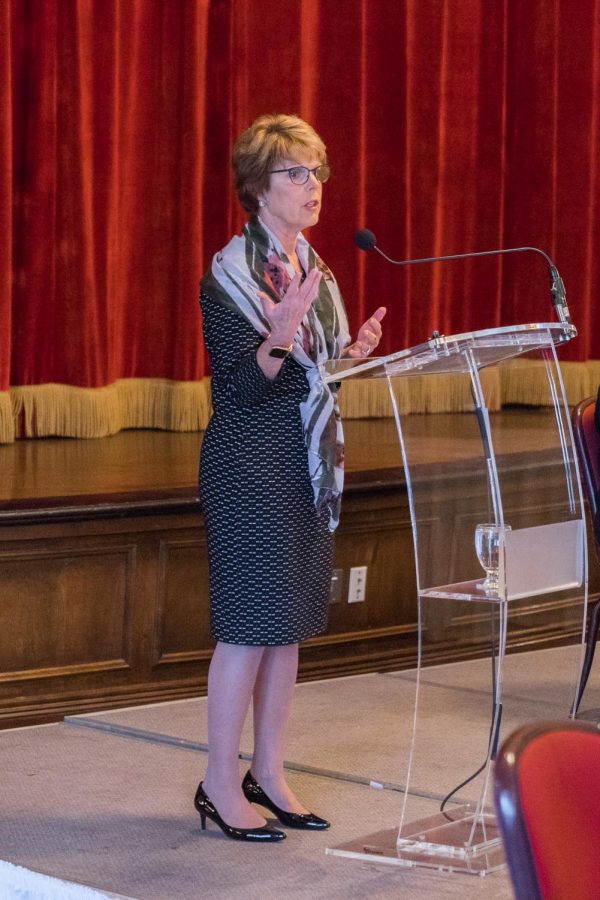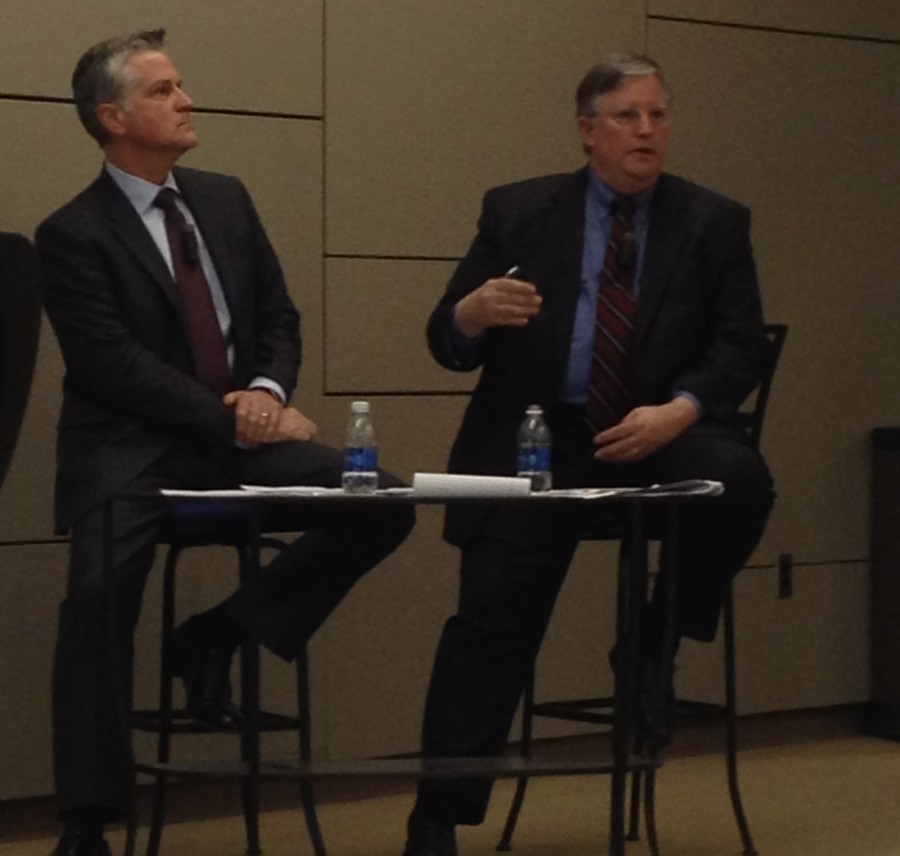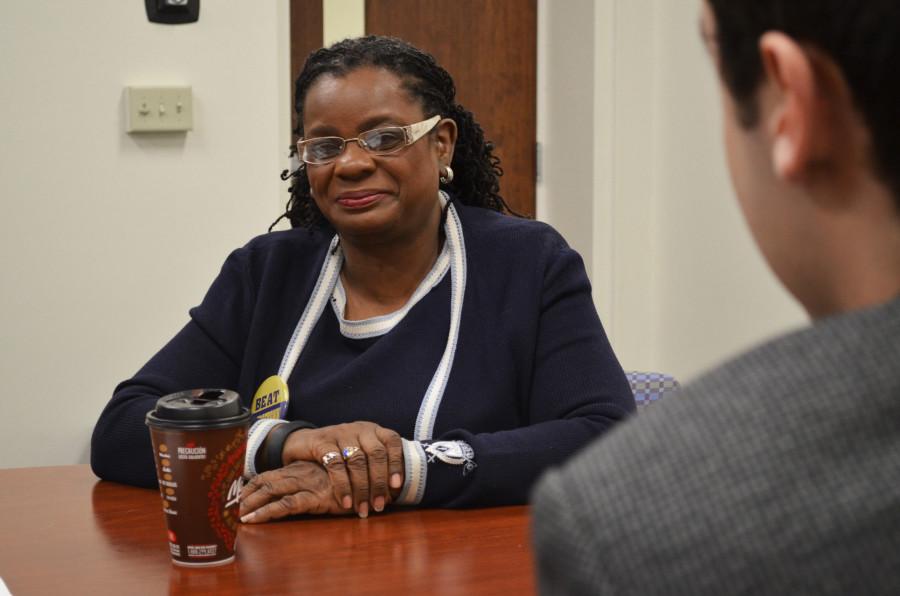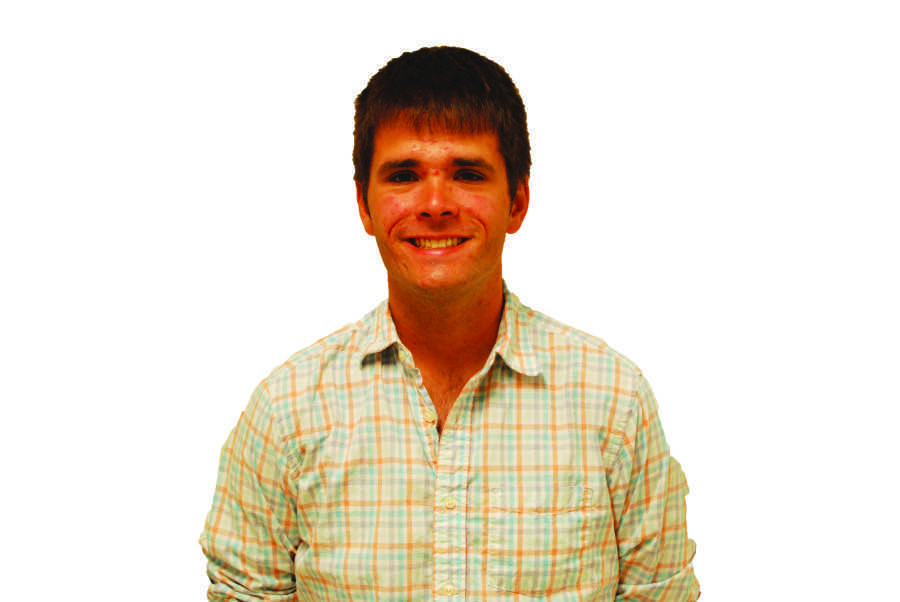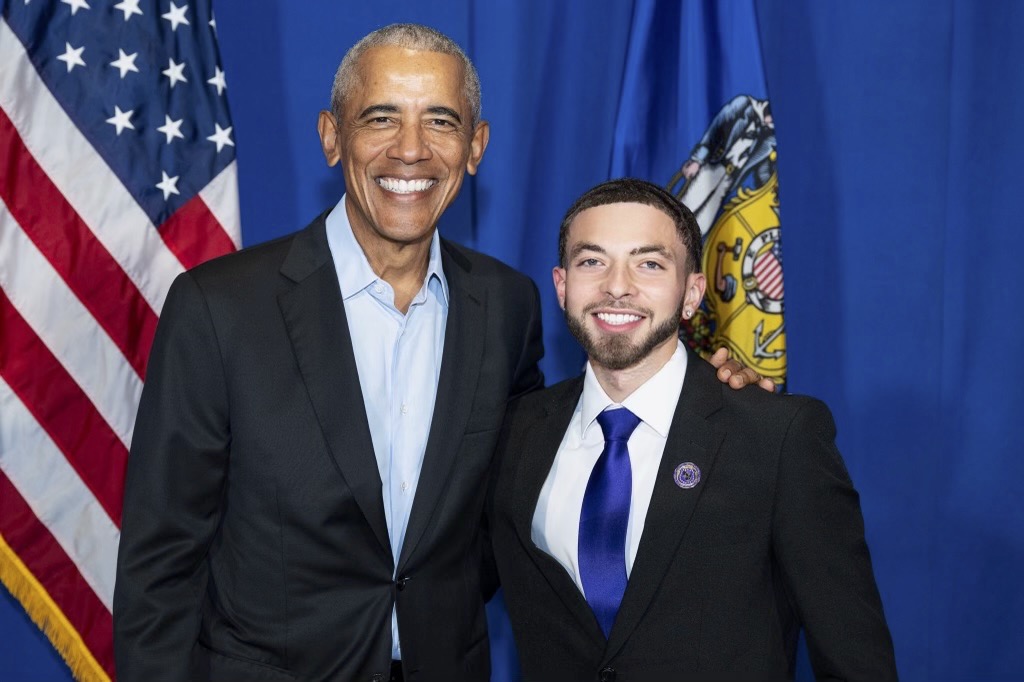Marquette University’s College of Nursing hosted “Looking to 2020: Healthcare and Politics,” a panel dedicated to exploring the importance of health care in the upcoming presidential election. The event took place at the Wisconsin Club Nov. 14.
Lisa Grabert, visiting professor in the college and former senior aid for the U.S. House of Representatives’ Ways and Means Committee; Peggy Troy, graduate of the college’s Class of ‘74 and the first female president and CEO of Children’s Wisconsin; and Charles Franklin, director of the Marquette Law School Poll and professor of law and public policy, spoke on the topic through the lens of their individual expertise.
Grabert identified key points she learned during her time in politics.
“If your main objective is to protect the status quo, you will be limited in how much you can change,” Grabert said.
The former aid added that if legislators didn’t think the system could do better, they would not run for office. She said that since lawmakers have placed themselves in positions of political power in order to see change, they will want to legislate.
“My work in the federal government has helped me understand who plays the most dominant roles in setting health care policy,” Grabert said.
Troy spoke more specifically about children in the health care system.
She said that since children, are unable to vote, adults need to advocate for them.
“When there’s health care policy being debated, most of it is designed around an adult model,” Troy said. “We have to show up locally — in Madison, in Washington D.C. — frequently so that we can be that voice for kids and talk about where in health policy kids fall.”
She said many kids end up on Medicaid because their families cannot afford to pay for their insurance. Troy differentiated this from Medicare, as the two are often confused.
“You can’t talk about them in the same voice,” Troy said.
“Medicare is a country-wide system of care that crosses all states,” Troy said. “Medicaid is a state program that gets federal funding.”
Troy said that every state can, within some parameters, decide how that money gets spent.
“Medicaid is a safety net program,” Troy said. “But 50% of our kids are on it.”
Troy also said that, although children comprise a sizable portion of the population, they are only allotted 20% of the health care budget.
From his lens as a pollster, Franklin spoke about the Affordable Care Act of the Obama administration.
The Patient Protection and Affordable Care Act was passed in 2010 in the first major revision of health care policy in the United States in many decades. According to its website, it has three primary goals: “make affordable health insurance available to more people … expand the Medicaid program to cover all adults with income below 138% of the federal poverty level … and support innovative medical care delivery methods designed to lower the costs of health care generally.”
“Wisconsin has been a little more negative on the Affordable Care Act than the country as a whole,” Franklin said.
Franklin said from the day it was passed, ACA was more unpopular than popular with the American public. About 53-55% said that they had an unfavorable view of ACA and about 42-45% said they had a favorable view, he said.
“That stayed the same through the end of 2016, only to dramatically reverse when President Trump took office with a Republican Congress, and you actually saw serious efforts to repeal or replace it,” Franklin said. “At that point, opinion flipped to almost the opposite of what it had been.”
Franklin said once the American public saw that the ACA might no longer exist, opinion changed. Although most people were not satisfied with it, they preferred its existence to its repeal, Franklin said.
The event had a strong push for bipartisanship, each speaker said.
Running in that vein, Grabert said a policy is only good if it has healthy amounts of support and disagreement. However, she said that any health care policy must be sold to both parties or you “have nothing to sell.”
The speakers also discussed how people can take action and make their voices heard.
“For all the nurses in this room, never underestimate the power of your voice, because it really does matter,” Troy said. “Use that voice, because it is really impactful.”
With the Democratic National Convention coming to Milwaukee summer 2020, all of the speakers said it is important to reach out to representatives.
Franklin said that, while mass emailing can make a difference, a handwritten letter goes a long way.
“When you engage in health care topics, you are passionate and making a difference,” Grabert said. “You can make a difference by engaging your lawmakers. Know who they are. Know their face. Call them. Write to them.”
This story was written by Shir Bloch. She can be reached at shir.bloch@marquette.edu.

